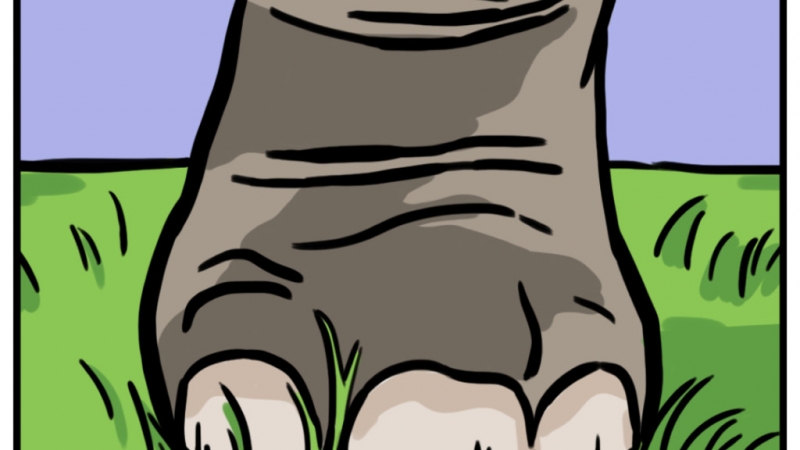
When Values Clash, it is the People that Suffer
CEO of Enstoa
“When elephants fight, it is the grass that suffers.” Business leaders today thinking about corporate values and culture can learn a lot from this ancient Kenyan proverb. A leader may wonder, what happens if the company values printed on mousepads or etched in glass in the lobby don’t reflect how people really feel and behave? Even though these proclaimed values may have been drawn up by well-intentioned people—founders, the board, HR, the exco—what happens if they’re inconsistent with the unspoken or organic values that really drive organizational culture? The grass dies.
As CEO and a leader at Enstoa, my goal is to ensure that the grass flourishes. Building on this Kenyan insight, I have found it to be a helpful analogy to think about one elephant as the organic values, the second as the proclaimed values, and the grass as the people within the organization.
Organic Values Drive Everything
Since a bane of leadership is confusion, there should only be one values elephant in an organization. The one that always exists, no matter what, is what I’m calling the organic values elephant. Organic values are often easier to define by perceiving what they are not. They are rarely the proclaimed values passed down unchanged through several generations of leaders. Organic values are the aggregate sum of real day-to-day behaviors, attitudes, and beliefs of the individuals.
Organic values drive the culture of an organization. They clarify to individuals and teams what is important and how best to get things done. (Or, as we say at Enstoa, “how to get things done, done.”) These values coordinate peoples’ efforts without the cost and inefficiency of close supervision. Organic values enjoy the spotlight and credit when an organization executes a strategy with success; or, if unsuccessful, the shame and blame.
Proclaimed Values
Continuing the analogy, the organic values elephant is seldom at peace and alone, but usually engaged in a death match with the proclaimed values elephant. Proclaimed values were usually drafted in the early days of an organization when the staff was small and culture unformed. Words like integrity and trust frequently appear.
Sadly, unless the early leadership team had complete clarity of thought and knowledge of themselves, unless they were Dalai Lamas, unless they relied on input from psychologists or behavioral scientists, the proclaimed values aren’t likely reflective of the true shared beliefs. This can create serious conflict and confusion for individuals inside and outside the organization. At the risk of being overly cynical, too often proclaimed values represent the aspiration of the few (at the top) over the many (at the bottom).
People Matter Most
What about the people in an organization? The impressive and consistent performance of companies that truly follow a people first strategy is just beginning to be studied and understood. With the right people operating in a congruent culture, an organization can execute on even the most ambitious strategies. Customers, shareholders, management, the wider team and so many others (except competitors!) benefit from this alignment between employees and values.
If two elephants fight, the grass gets trampled. If an organization has two different values sets, organic and proclaimed, the people are demoralized and become paycheck collectors. It is a critical job of leadership to ensure there are not competing elephants: there can be only one set of values. Empowered teams and individuals can do the remarkable but not under the weight of fighting elephants.
Growing a Value-less Company
Enstoa started over eight years ago and grew significantly without ever publishing values. It has been just us and the organic values elephant. I was too afraid of creating conflict with the unspoken, hidden and powerful values that really drove our culture. It seemed like the least risky option and inline with Enstoa’s view that business strategy is about getting on base consistently, not swinging for the fences.
The future will judge that decision with the clarity of hindsight, but it felt right at the time. It is our organic values that put us on the Inc 5000 list for five consecutive years (and counting). It is our organic values that attract and retain our amazing people, our talent that moves the needle.
Proclaiming our True Values
Recently we launched an initiative to define our personal and professional values in an effort to proclaim the right values, or more specifically, to proclaim our organic values. It will be fascinating to see where we land. Stay tuned!
“When elephants fight, it is the grass that suffers.” Business leaders today thinking about corporate values and culture can learn a lot from this ancient Kenyan proverb. A leader may wonder, what happens if the company values printed on mousepads or etched in glass in the lobby don’t reflect how people really feel and behave? Even though these proclaimed values may have been drawn up by well-intentioned people—founders, the board, HR, the exco—what happens if they’re inconsistent with the unspoken or organic values that really drive organizational culture? The grass dies.
As CEO and a leader at Enstoa, my goal is to ensure that the grass flourishes. Building on this Kenyan insight, I have found it to be a helpful analogy to think about one elephant as the organic values, the second as the proclaimed values, and the grass as the people within the organization.
Organic Values Drive Everything
Since a bane of leadership is confusion, there should only be one values elephant in an organization. The one that always exists, no matter what, is what I’m calling the organic values elephant. Organic values are often easier to define by perceiving what they are not. They are rarely the proclaimed values passed down unchanged through several generations of leaders. Organic values are the aggregate sum of real day-to-day behaviors, attitudes, and beliefs of the individuals.
Organic values drive the culture of an organization. They clarify to individuals and teams what is important and how best to get things done. (Or, as we say at Enstoa, “how to get things done, done.”) These values coordinate peoples’ efforts without the cost and inefficiency of close supervision. Organic values enjoy the spotlight and credit when an organization executes a strategy with success; or, if unsuccessful, the shame and blame.
Proclaimed Values
Continuing the analogy, the organic values elephant is seldom at peace and alone, but usually engaged in a death match with the proclaimed values elephant. Proclaimed values were usually drafted in the early days of an organization when the staff was small and culture unformed. Words like integrity and trust frequently appear.
Sadly, unless the early leadership team had complete clarity of thought and knowledge of themselves, unless they were Dalai Lamas, unless they relied on input from psychologists or behavioral scientists, the proclaimed values aren’t likely reflective of the true shared beliefs. This can create serious conflict and confusion for individuals inside and outside the organization. At the risk of being overly cynical, too often proclaimed values represent the aspiration of the few (at the top) over the many (at the bottom).
People Matter Most
What about the people in an organization? The impressive and consistent performance of companies that truly follow a people first strategy is just beginning to be studied and understood. With the right people operating in a congruent culture, an organization can execute on even the most ambitious strategies. Customers, shareholders, management, the wider team and so many others (except competitors!) benefit from this alignment between employees and values.
If two elephants fight, the grass gets trampled. If an organization has two different values sets, organic and proclaimed, the people are demoralized and become paycheck collectors. It is a critical job of leadership to ensure there are not competing elephants: there can be only one set of values. Empowered teams and individuals can do the remarkable but not under the weight of fighting elephants.
Growing a Value-less Company
Enstoa started over eight years ago and grew significantly without ever publishing values. It has been just us and the organic values elephant. I was too afraid of creating conflict with the unspoken, hidden and powerful values that really drove our culture. It seemed like the least risky option and inline with Enstoa’s view that business strategy is about getting on base consistently, not swinging for the fences.
The future will judge that decision with the clarity of hindsight, but it felt right at the time. It is our organic values that put us on the Inc 5000 list for five consecutive years (and counting). It is our organic values that attract and retain our amazing people, our talent that moves the needle.
Proclaiming our True Values
Recently we launched an initiative to define our personal and professional values in an effort to proclaim the right values, or more specifically, to proclaim our organic values. It will be fascinating to see where we land. Stay tuned!




